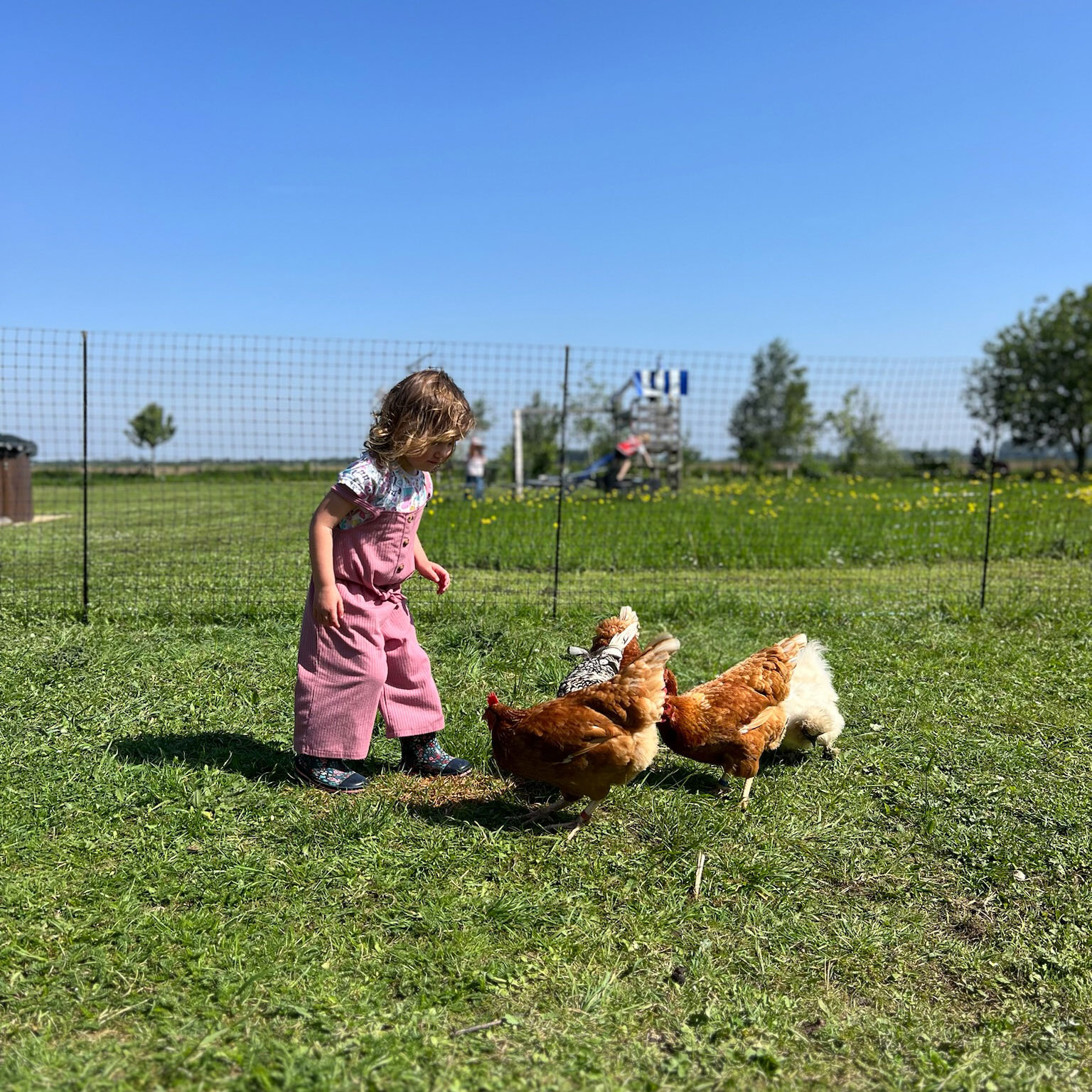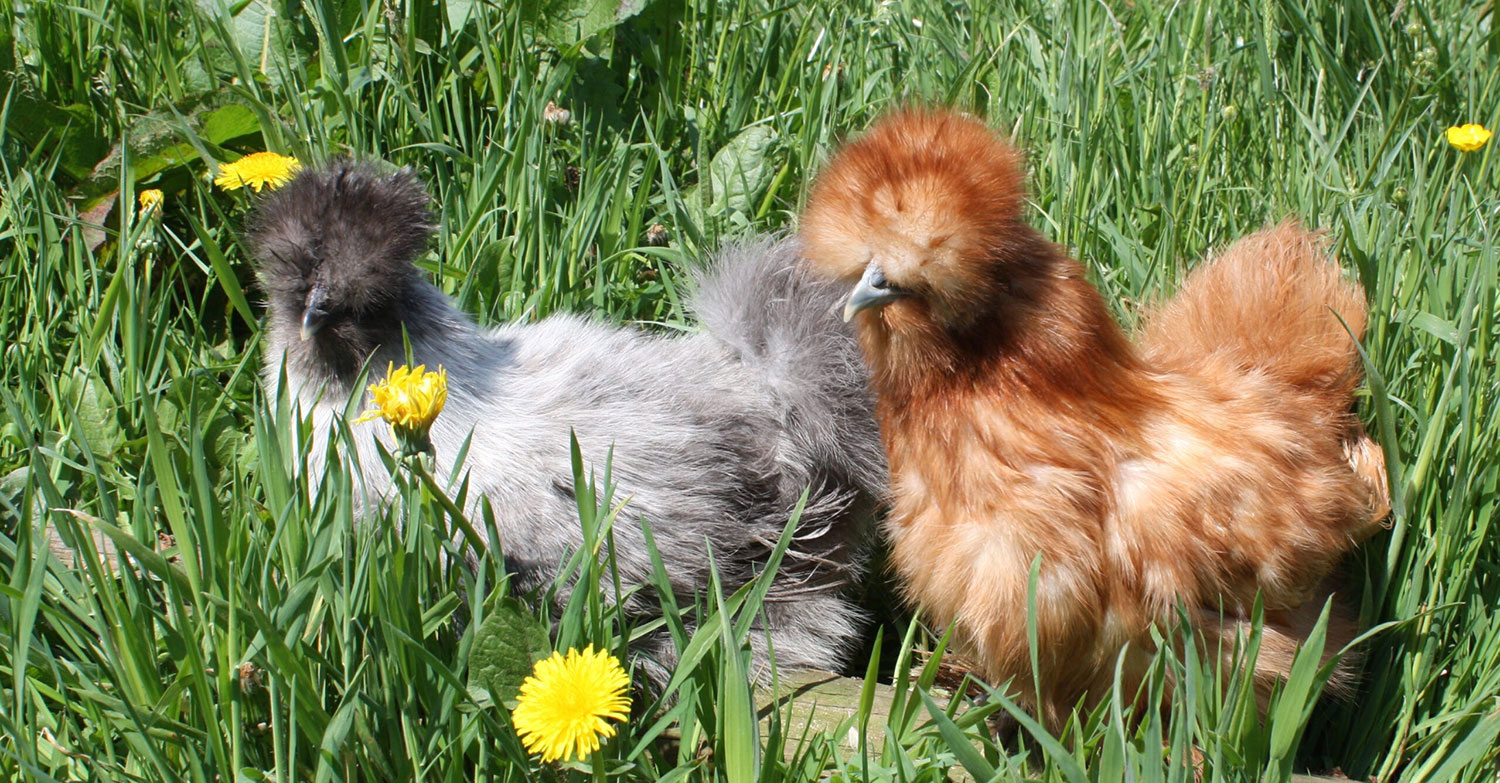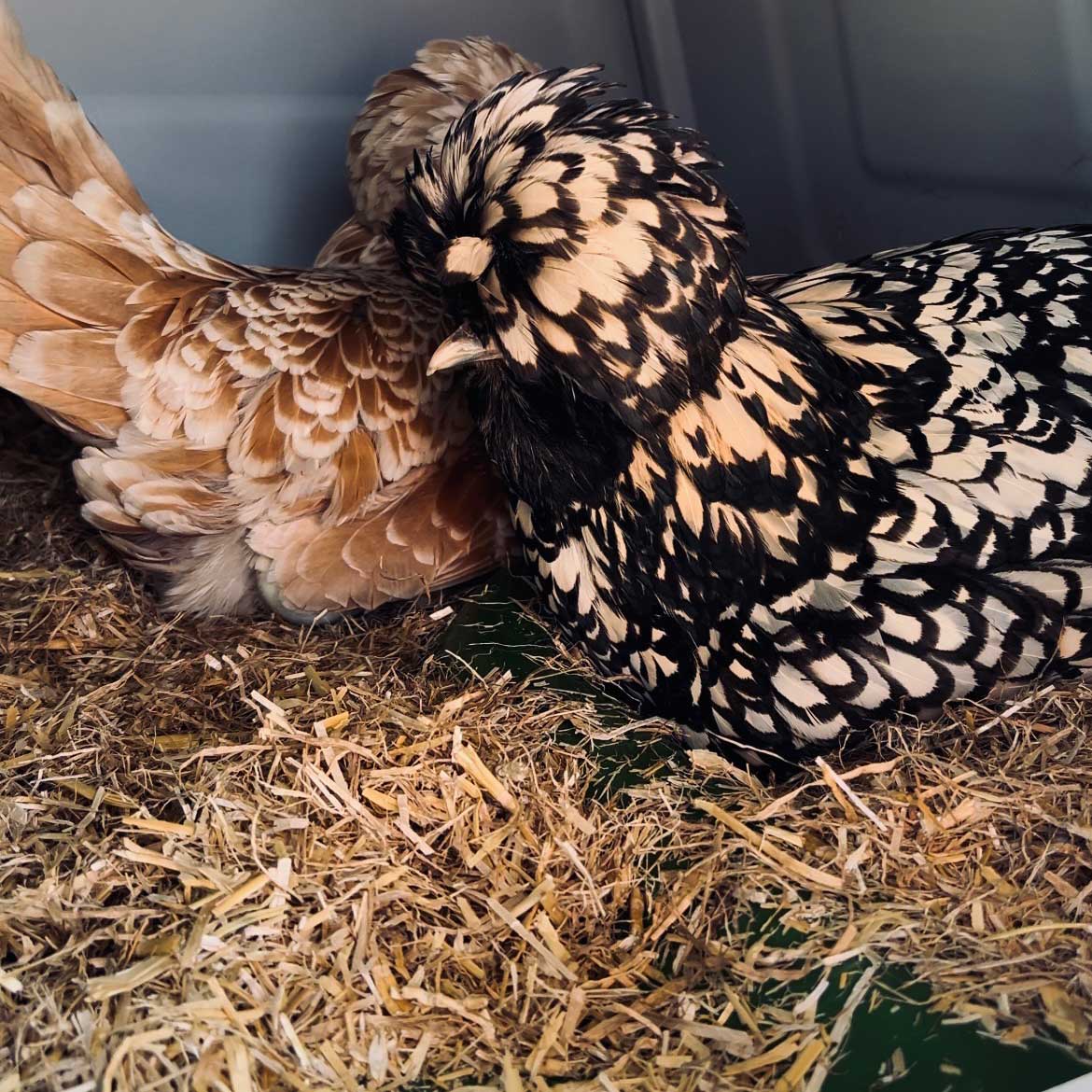


Mycoplasma in Chickens: Spotting, Treating and Supporting Your Flock
If you’ve been keeping chickens for a while, you’ll know that the occasional cough, sneeze or sniffle can happen, especially when the seasons change or your flock is under stress. But if you start hearing persistent rattly breathing, wheezing or see bubbly eyes, it could be something more serious, possibly Mycoplasma. Don’t panic though. It’s a common respiratory infection in poultry, and with early treatment, your hens can recover well and get back to their usual happy scratching and clucking in no time.
What Is Mycoplasma?
Mycoplasma is a bacterial infection that affects a chicken’s respiratory system. There are two main types that tend to crop up in backyard flocks, Mycoplasma gallisepticum and Mycoplasma synoviae. Both can cause breathing problems, but each has its own tell-tale signs.
- Mycoplasma gallisepticum often leads to swollen eyelids, watery or bubbly eyes, and that distinctive wheezy breathing sound you might hear most clearly at night when your hens are relaxed.
- Mycoplasma synoviae can also cause thick yellow pus in the eyes and sinuses, along with swollen joints or thin-shelled eggs.
Because symptoms overlap with other respiratory issues such as infectious bronchitis or colds, it’s always wise to get a professional diagnosis from your vet before starting any treatment.
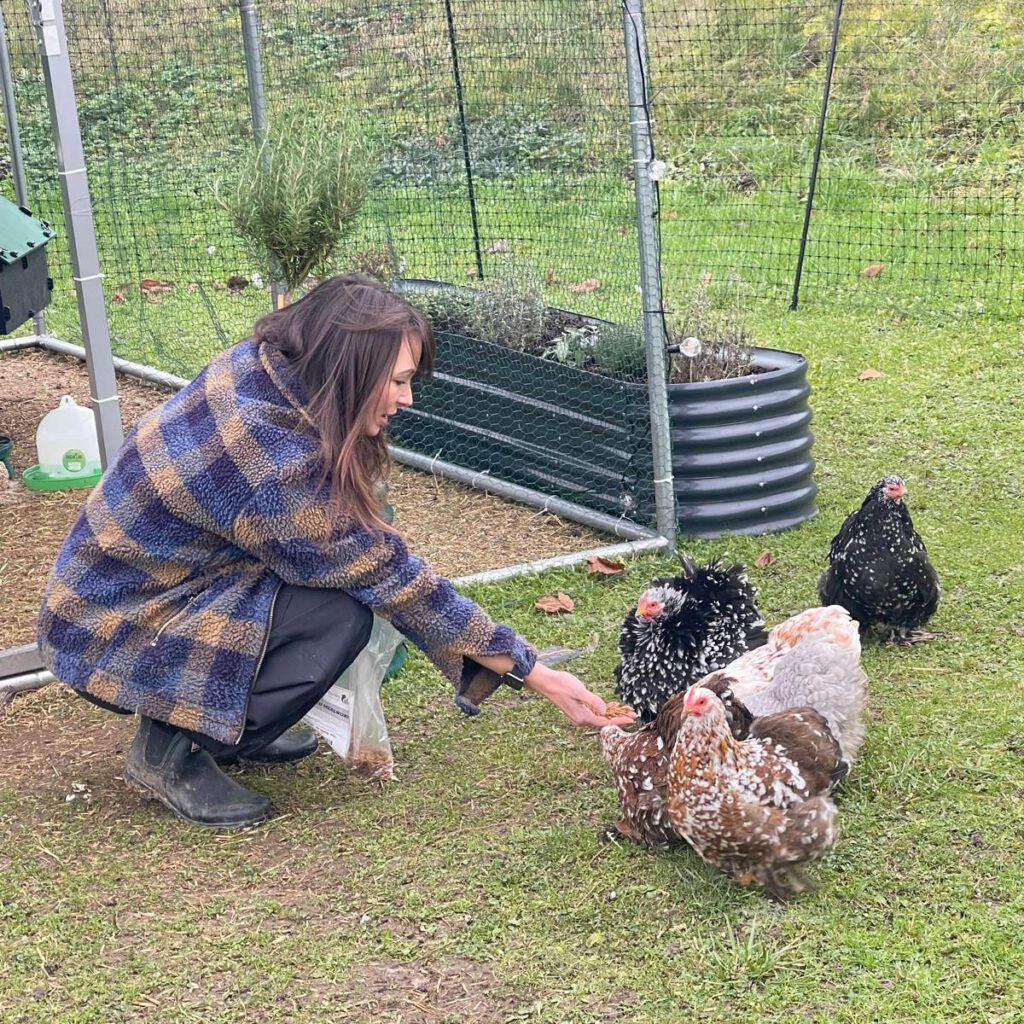
How Do Chickens Catch Mycoplasma?
Unfortunately, Mycoplasma spreads easily through close contact, shared feed or water, and even through the air in enclosed spaces. It can also be passed from hen to chick through the egg. Stress, poor ventilation, overcrowding or damp conditions can all make a flock more vulnerable.
If one bird is infected, it’s likely that others have already been exposed — even if they don’t show symptoms right away. Some hens can carry the bacteria without showing signs until they’re stressed, moulting, or going through a sudden change such as a move or introduction of new birds.
Common Symptoms to Watch Out For
- Sneezing, wheezing or coughing
- Swollen eyes or sinuses
- Bubbly or foamy discharge from the eyes
- Lethargy or reduced appetite
- Drop in egg production
- Thin shells or misshapen eggs
- Gasping at night when the coop is quiet
If you notice several of these symptoms, it’s best to act quickly. Early treatment gives the best chance of full recovery and helps stop the infection spreading through your flock.
Treating Mycoplasma in Chickens
If caught early enough, Mycoplasma infections respond well to antibiotics. The most common and effective treatment is Tylan, which you’ll need to get via a veterinary prescription. It’s usually added to drinking water or administered directly by syringe, depending on your vet’s advice.
Once treatment begins, most hens start to perk up within a few days, though it’s important to complete the full course to prevent recurrence or resistance.
Even with antibiotics, recovery can take time, and some birds may remain carriers for life. That means they can seem perfectly healthy but still spread the bacteria to others. For this reason, good biosecurity and supportive care are just as important as the medication itself.
Supporting Recovery with Natural Tonics
Alongside veterinary treatment, a good poultry tonic can make a big difference to recovery. Products such as Agrivite Poultry Respite Tonic are designed to support hens during and after respiratory illness. Respite is a natural, herbal tonic that helps soothe respiratory distress, relieve coughing, and strengthen the immune system.
Adding it to drinking water for a few days (or as directed on the bottle) can help your hens bounce back faster and regain their energy. It’s especially useful after a bout of Mycoplasma or when your flock seems run down during cold or damp weather.
How to Give Medicine or Tonic to Chickens
Administering medicine to chickens can feel daunting, but there are a few easy methods that make it far less stressful for both you and your birds.
- In Drinking Water
Many antibiotics and tonics can be diluted into the flock’s water supply. Always remove other water sources so all hens drink from the treated supply. Keep it fresh daily, and follow dosage instructions carefully. - By Syringe or Dropper
For individual treatment, use a small syringe or dropper to gently give medication straight into the beak. Hold the hen firmly but gently, keeping her calm and upright to avoid aspiration. A towel around the body can help if you’re working alone. - On Food or Treats
If your hens are fussy drinkers, you can sometimes disguise medicines by mixing them with a small amount of soft food such as scrambled egg or a favourite mash. Just make sure each hen gets her full dose. - Aftercare
Once your hens are medicated, keep them warm, dry, and stress-free. Clean out the coop thoroughly to remove any lingering bacteria, and avoid introducing new birds until your flock is fully recovered.
Can Mycoplasma Be Prevented?
While you can’t always stop bacteria finding their way in, good flock management goes a long way toward prevention.
- Keep coops clean and well-ventilated
- Avoid overcrowding
- Quarantine new birds for at least two weeks
- Use disinfectant regularly on feeders, drinkers and perches
- Provide a balanced diet and vitamin supplements to boost immunity
A healthy, happy flock is naturally more resilient to infection.
When to Call the Vet
If symptoms persist after tonic use, or if your hens appear to struggle with breathing, lose condition, or stop eating altogether, contact your vet right away. They can confirm the diagnosis and prescribe the right antibiotic or treatment plan.
Does my Chicken have Mycoplasma?
Mycoplasma can sound worrying, but it’s one of those conditions many chicken keepers will encounter at some point. The key is early recognition, prompt treatment, and plenty of supportive care. Keep an eye out for sneezing or bubbling eyes, act quickly if you suspect infection, and always have a bottle of something like Agrivite Poultry Respite Tonic on hand for those times when your flock needs a little extra help. With good management and a watchful eye, your hens will be back to their cheerful, egg-laying selves before you know it.
You can also check our chicken health checker to help diagnose whether your chicken is suffering from Mycoplasma, or use our "call me asap" help service - for only £12 you can book a video call with our chief chicken whisperer, where we can help diagnose any ailments your chicken may have. Pipinchick stocks a wide range of chicken healthcare products to support your chickens' health and well-being. We are one of the UK's most trusted suppliers of live chickens delivered safely to your door, after being reared with love at our farm in the beautiful Somerset countryside near Bristol.

